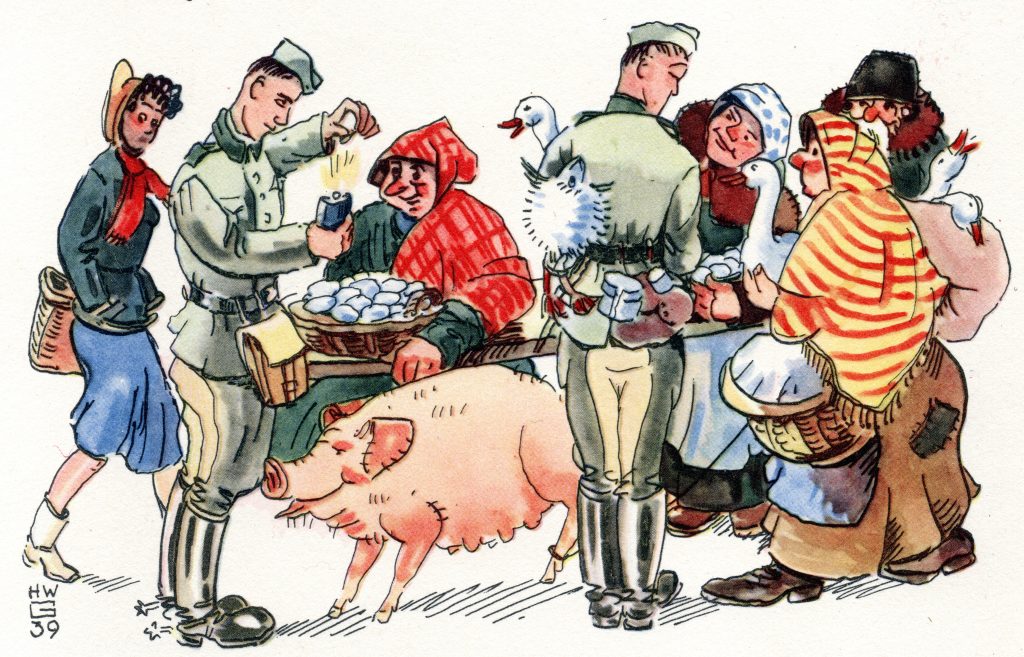In a previous post we shared a recipe for German style pot roast, from a Wehrmacht cookbook. I wanted to try to cook this over a fire using types of cookware that might have been available to Wehrmacht soldiers. The original recipe is deliberately vague and open to interpretation, as is common for Wehrmacht recipes; they had to be flexible, as what ingredients were locally available could vary from place to place, and from time to time. I altered the recipe slightly based on traditional German Schmorbraten recipes, and what ingredients were readily available for me. The dish was easy to prepare and absolutely delicious.
I started with a chuck roast. I tied it with a string so that it would stay in one piece during cooking. I seasoned it with salt and pepper.
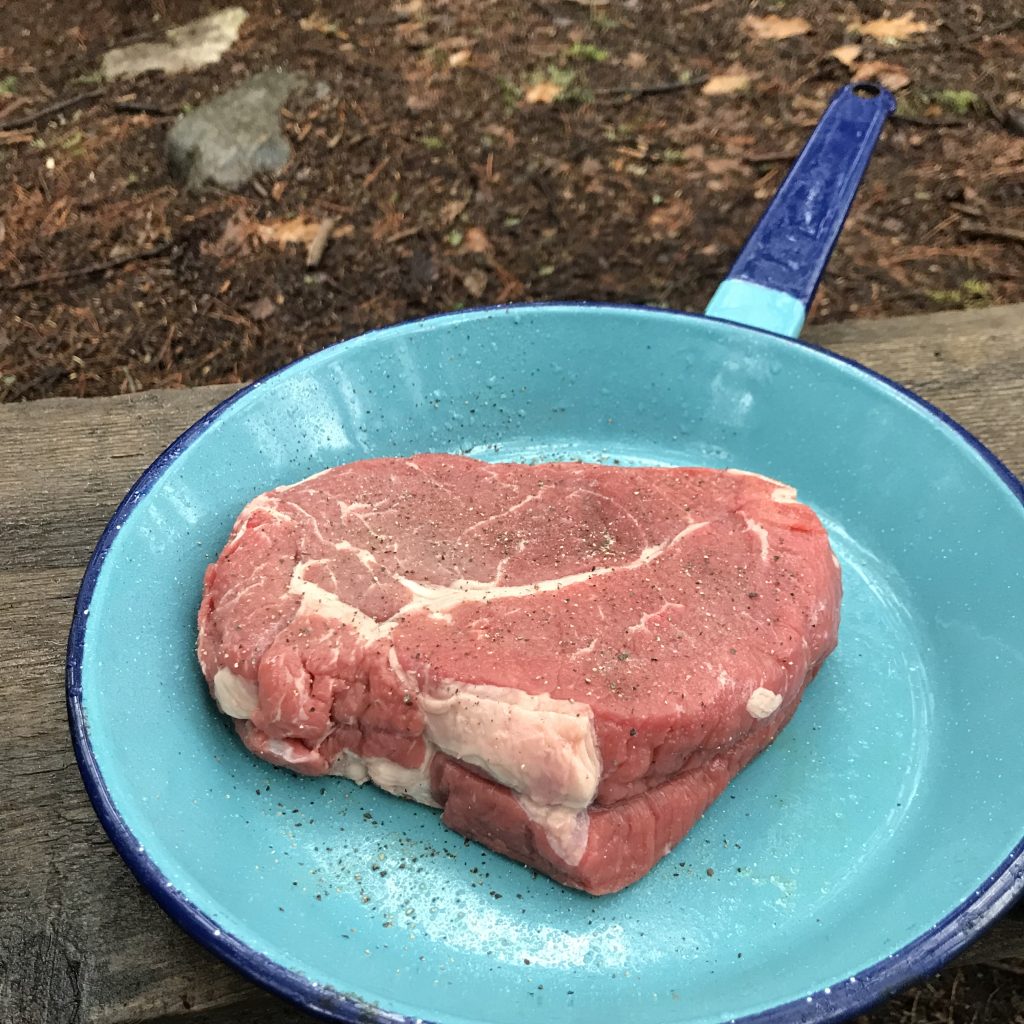
In a frying pan, I seared the meat in a little oil on high heat on both sides, until it was well-browned.
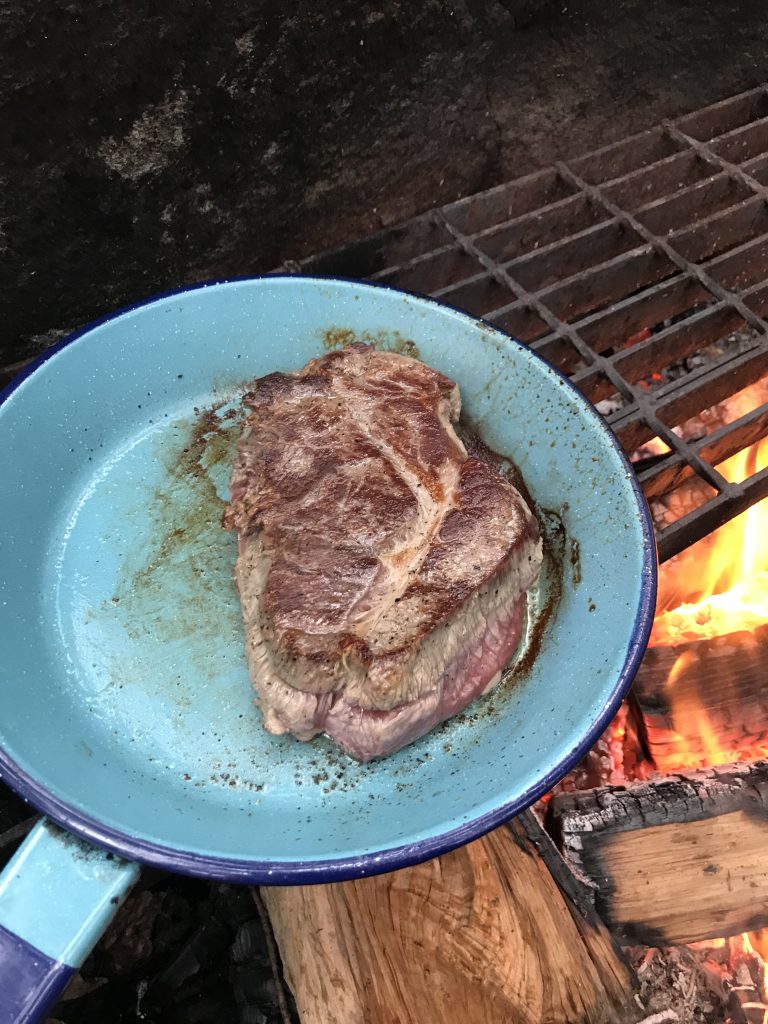
I removed the meat from the pan, and set it aside in a pot. In the same pan I used for the meat, I fried some onions until translucent.
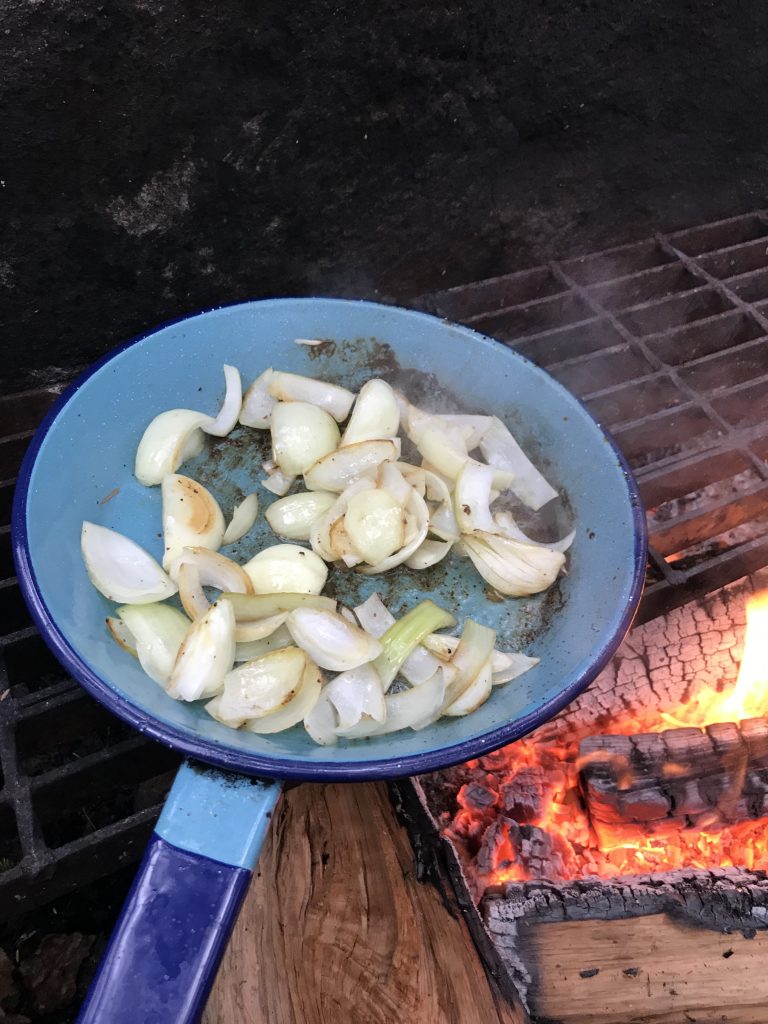
I then added chopped root vegetables to the pan. I used potatoes, carrots and parsnips, as those were what was available in my area.
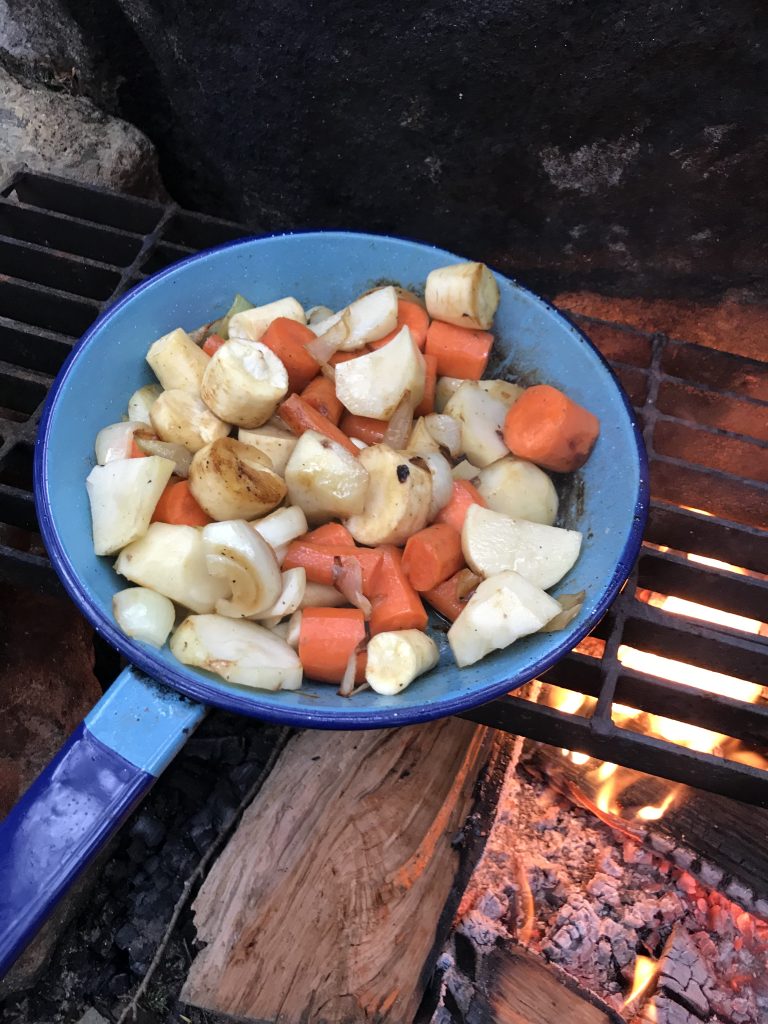
After the vegetables had browned up a bit, I added some flour, constantly stirring, until the vegetable pieces were lightly coated with flour. The purpose of this is to thicken the sauce into a rich, thick gravy as the roast cooks.
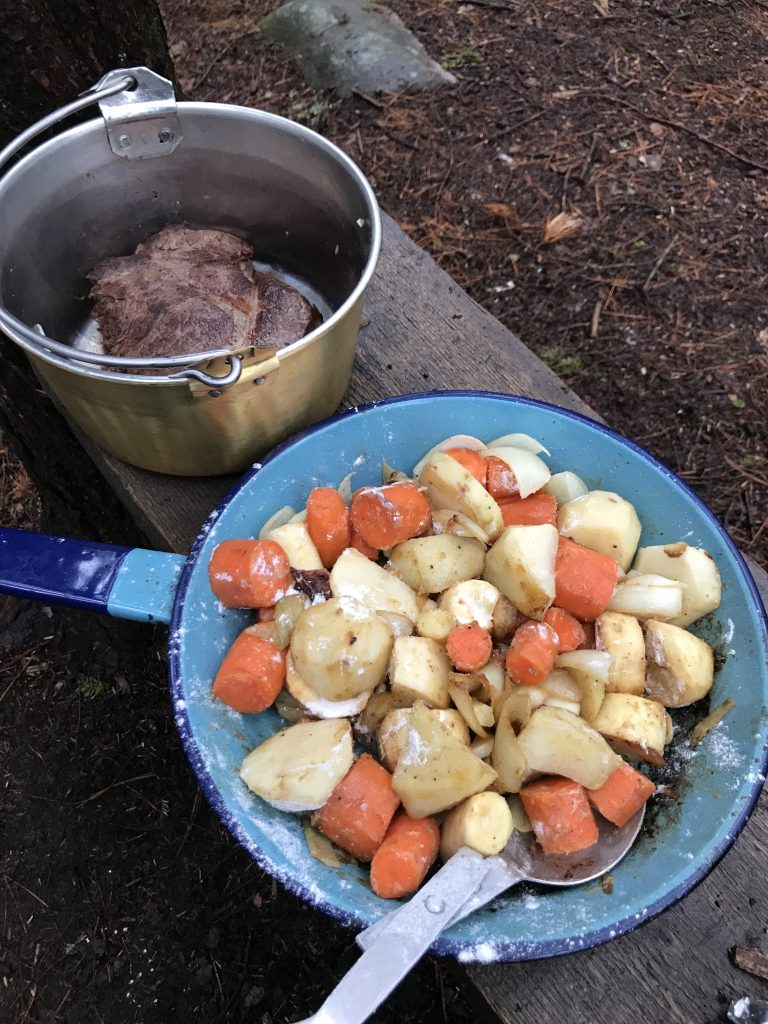
After this, I put the vegetables in the pot on top of the meat. I used a little red wine to de-glaze the pan. The roasted bits from the bottom of the pan add a lot of flavor to the gravy.
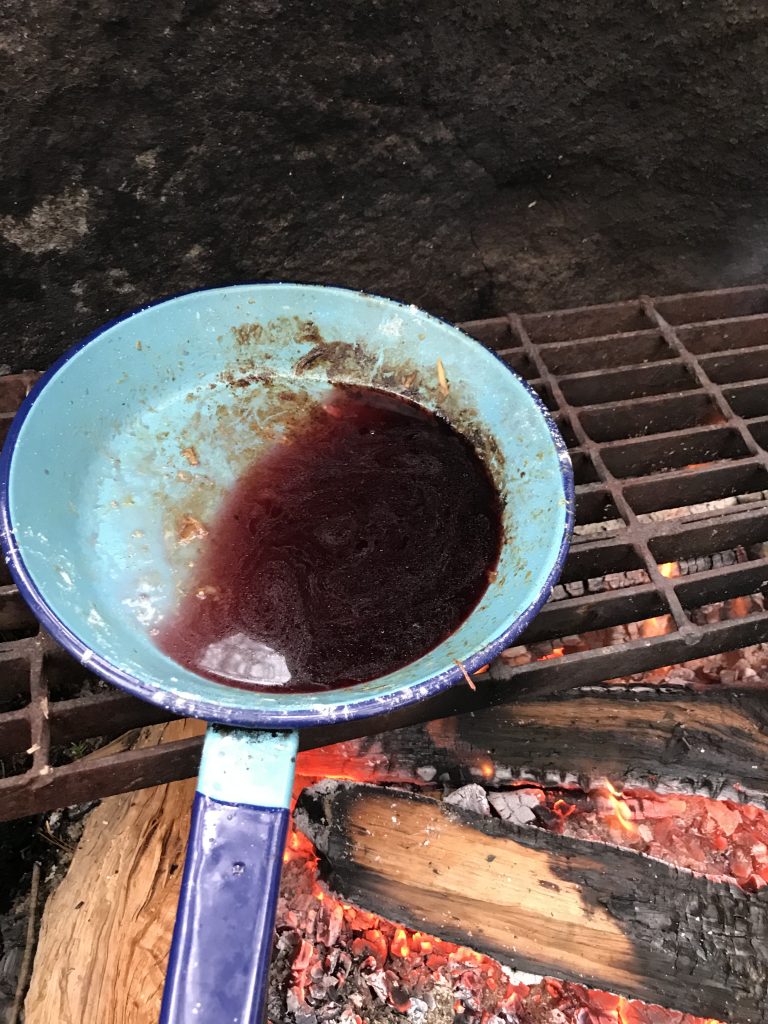
I poured the wine into the pot over the vegetables and meat and added water to cover all of the ingredients, and put the pot over a hot fire to bring the water to a boil.
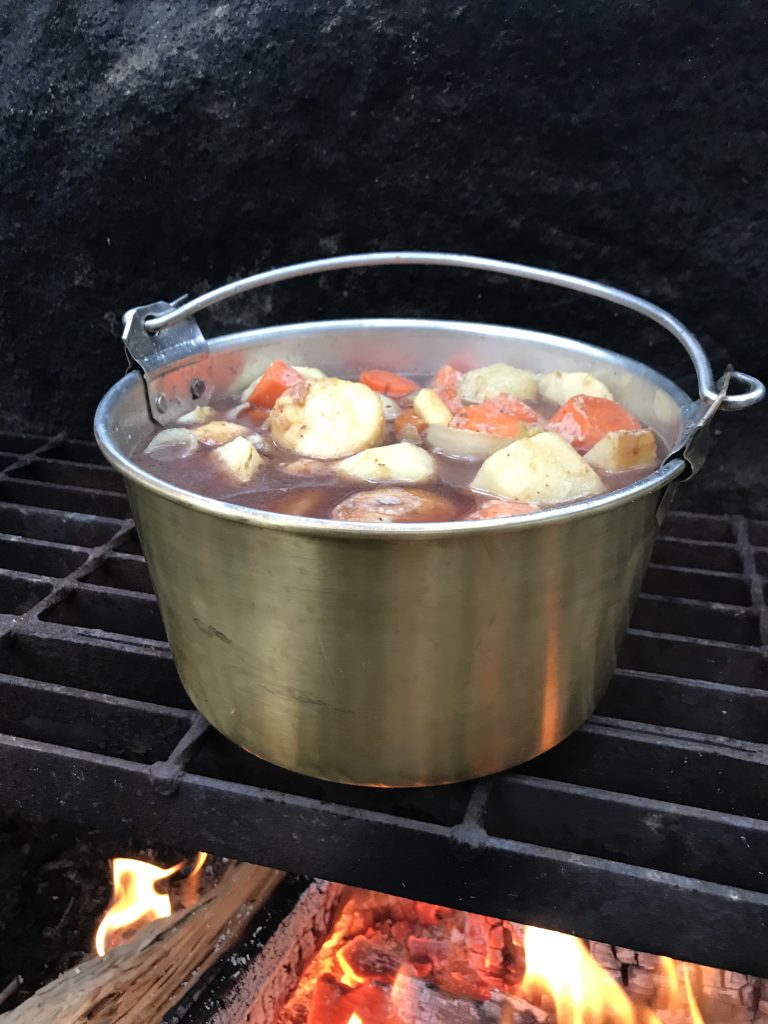
To season the broth, I added a couple of cubes of beef bullion, as well as bay leaves, whole allspice, and caraway seeds. The photo illustrates the amount of spices I used.
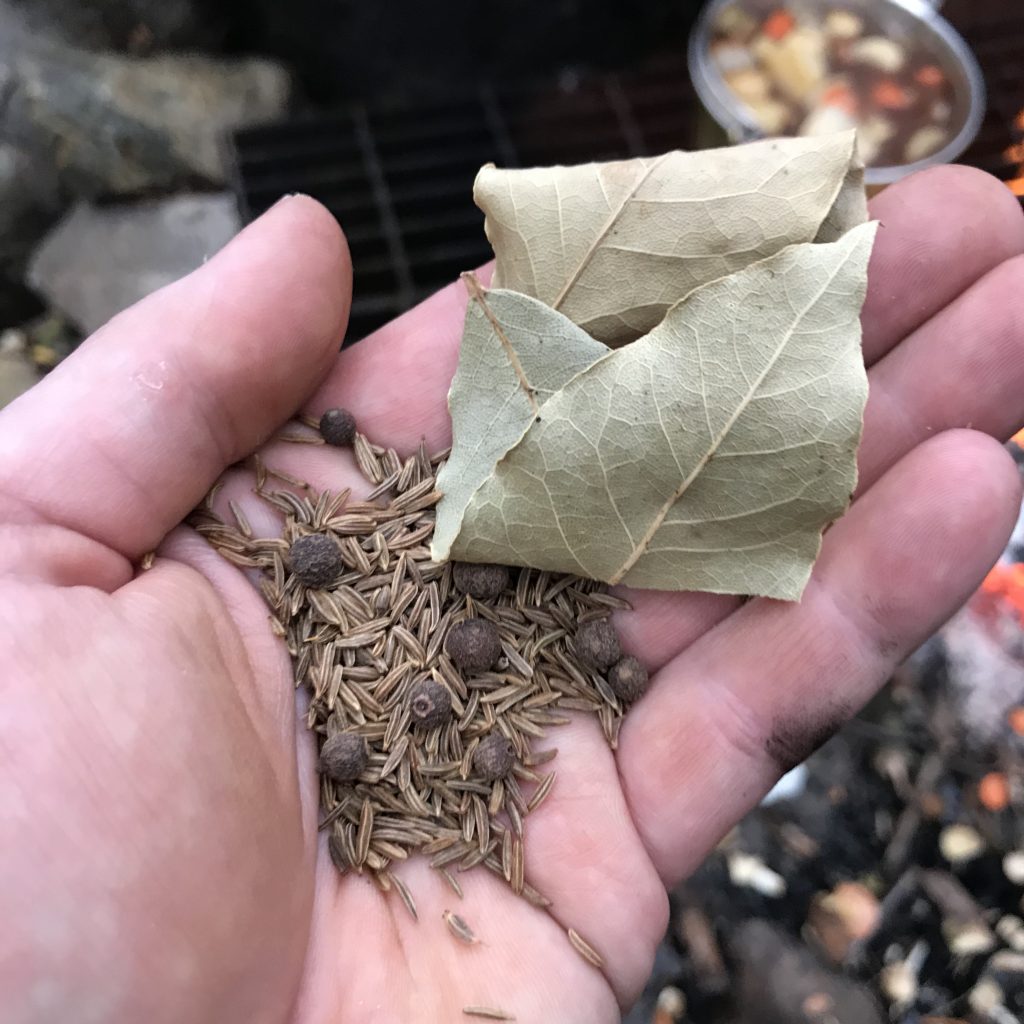
After the pot came to a boil, cooking was just a matter of maintaining a simmer over a low heat, and occasionally stirring.
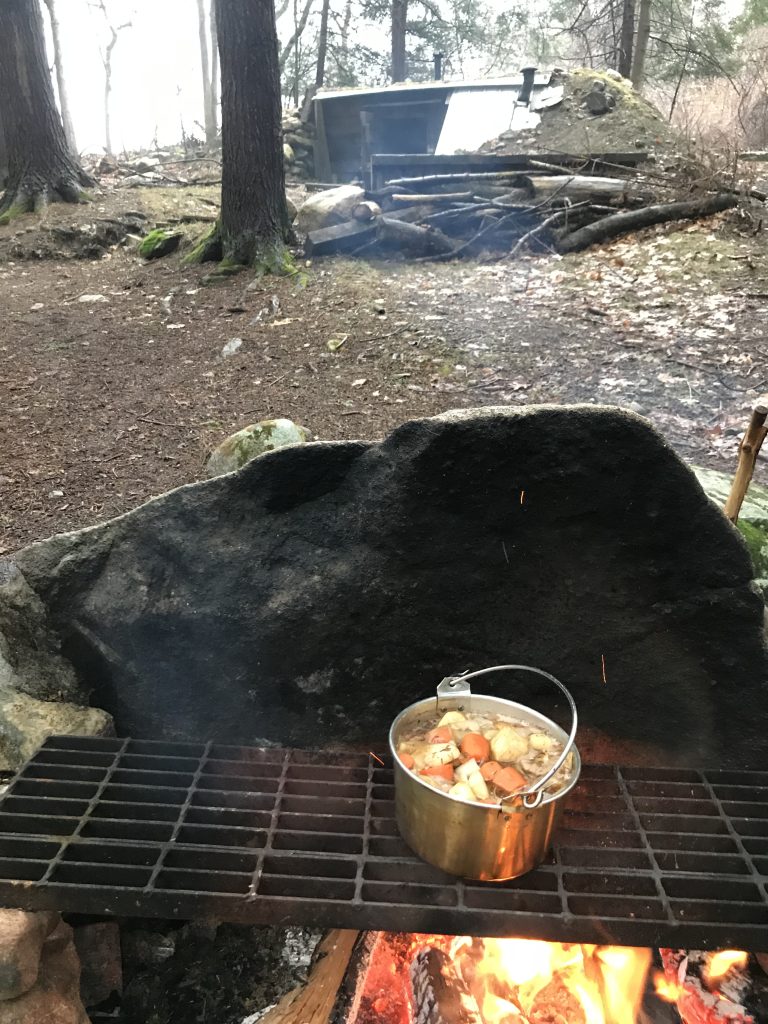
I simmered the roast for three hours, after which the meat was absolutely fork tender, falling apart. No knife needed.
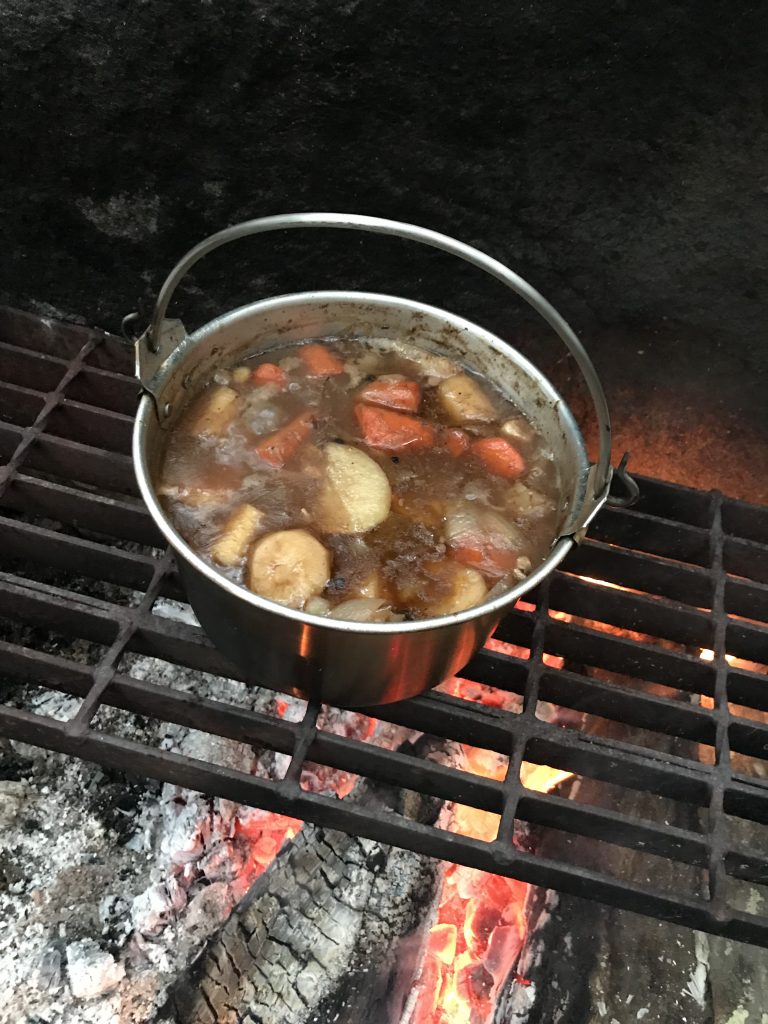
The flavor of the meat was fantastic, the gravy thick and rich. Hearty and nourishing- pure comfort food.

Might Wehrmacht soldiers have access to the meat and other ingredients for this meal? It would depend on where they were, and the local situation, but there is abundant documentation for soldiers obtaining foodstuffs and making meals when they could, to supplement their rations. This drawing, made by a German soldier, shows soldiers shopping from locals in Poland in 1939.
